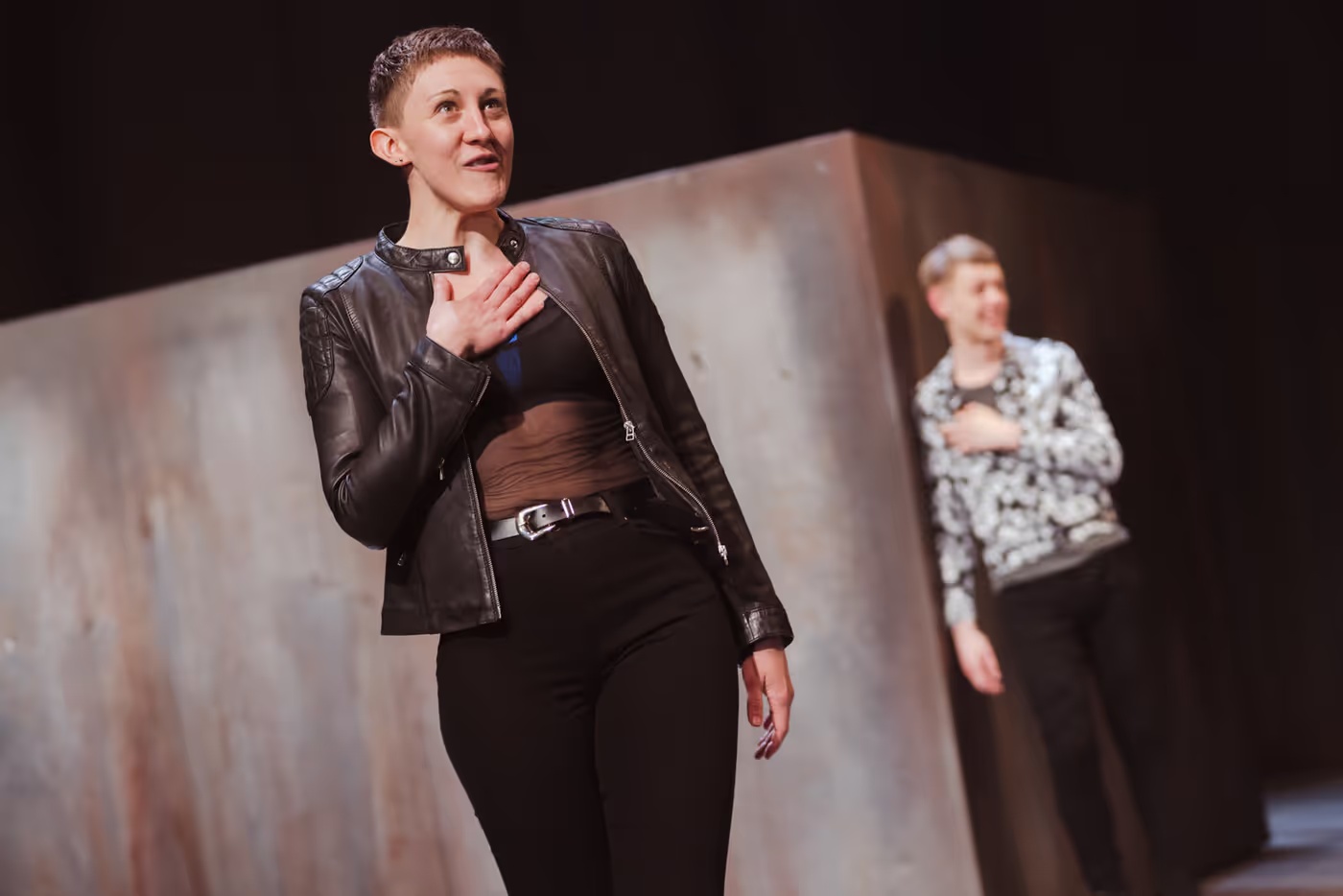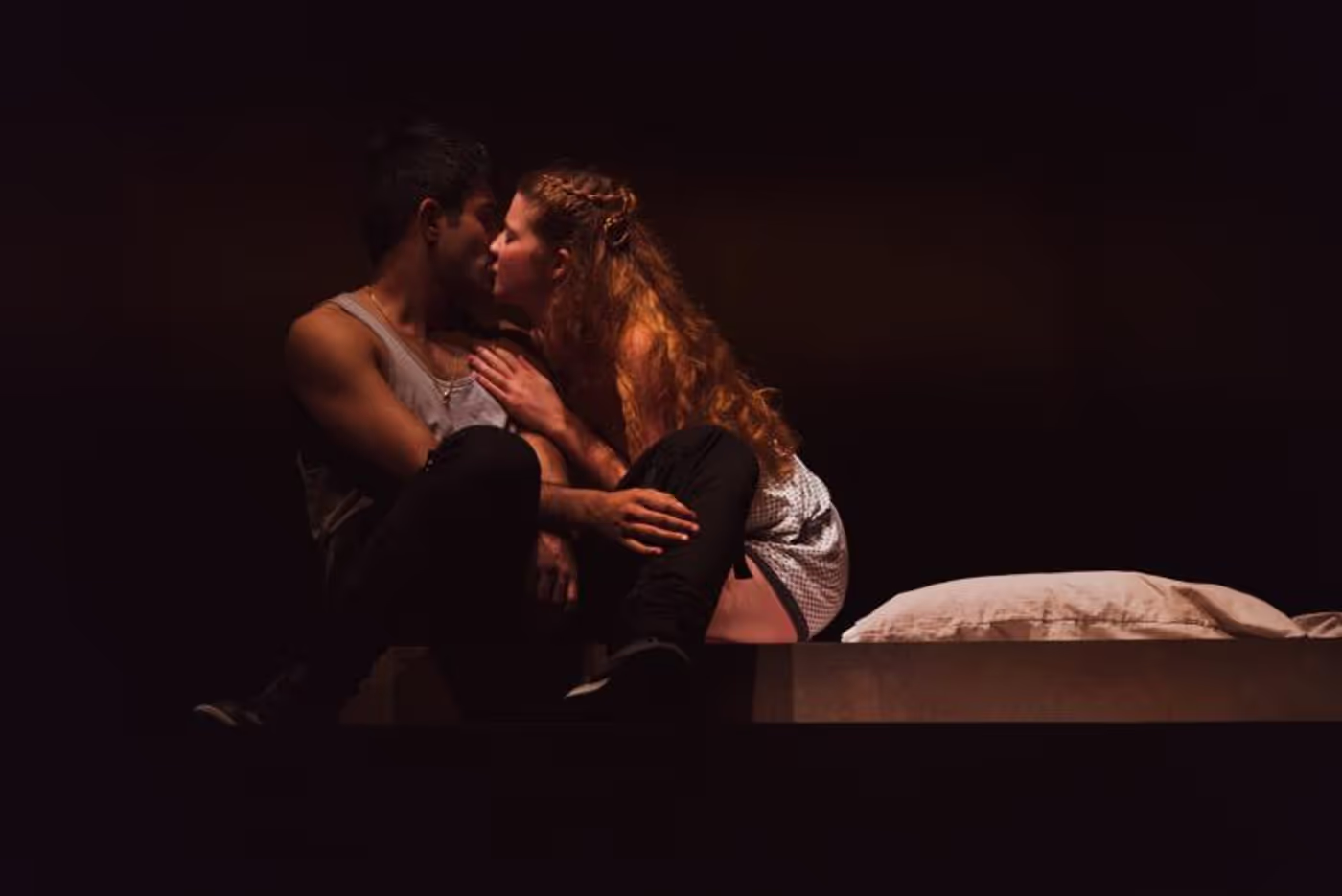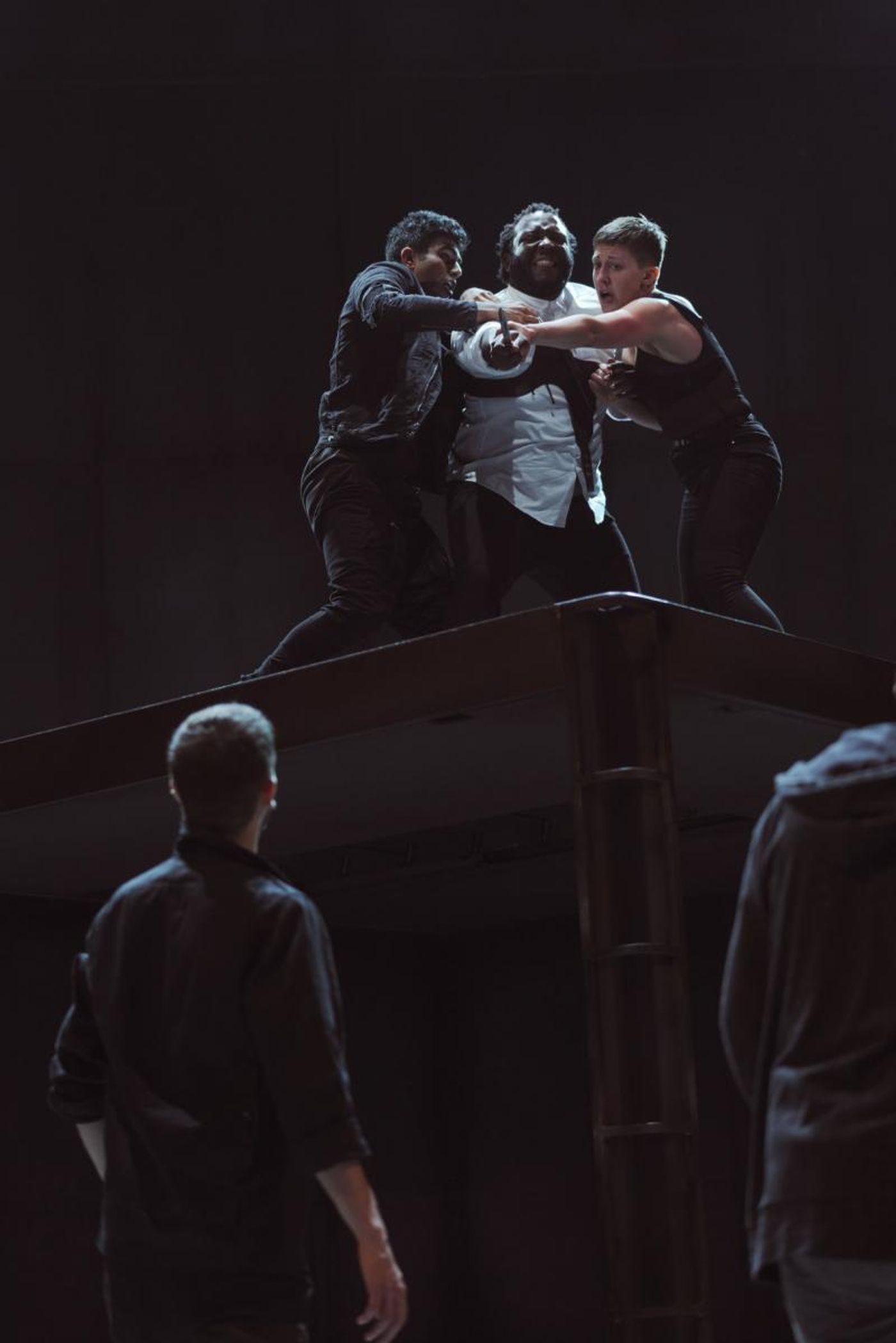Interview: Charlotte Josephine Talks ROMEO AND JULIET

in Romeo and Juliet
Actress and writer Charlotte Josephine features in her first season for the Royal Shakespeare Company, playing Mercutio in Romeo and Juliet.
Catching up on the first day of rehearsals for the London transfer, Charlotte spoke to us about how Erica Whyman's production will resonate with audiences, as well as what it's like taking on a role normally played by a man and speaking "forbidden" words.
What's your earliest memory of Shakespeare?
It was an English lesson at school, where the teacher read out all of the parts. And we just sat and listened, so that was boring. I just thought it was something for silly, rich people basically. I was never interested in any of the parts, because I thought the parts for women in Shakespeare plays were a bit shit.
Then I read Romeo and Juliet at school and we watched that amazing Baz Luhrmann film as part of that.
And what's your relationship been like since then?
I remember I had to pick a contemporary speech and a classical speech when I auditioned for drama school. And I was told that I had to pick a female character (I hope that's changed now). I really wanted to do one of Hamlet's speeches, but I was told that I wasn't allowed. So I picked Juliet's "Gallop apace" speech and fell in love with the language and the imagery.
Since then, I did Julius Caesar at the Donmar, an all-female version. I was quite excited by being on stage with a load of women, that felt revolutionary. And similarly to playing Mercutio now, it feels really exciting to say words that had been forbidden in our mouths.
So I've fallen in love with Shakespeare really in the last couple of years, I think.
You mentioned you studied it in school. What were your initial impressions of the play back then?

in Romeo and Juliet
I was really annoyed at Juliet! I thought she was wet and passive and pretty, and I just wasn't interested in that.
But now, reading the text again and the way that Karen [Fishwick] plays it, you can see that she's actually much more active and direct and energetic than Romeo is. She makes all of the decisions, she comes up with the plan.
She stabs herself with this big Roman death and he's got a knife in his pocket, but he takes poison. So she's actually f-ing cool, but for some reason we've been taught this passive, feminine version which I think has been really damaging actually.
And I remember just falling in love with Mercutio. I was just like, "That would be much more fun to play!"
And now you're playing her! What are your thoughts on Mercutio and that role?
With Mercutio, I feel like I'm definitely an other and I'm kind of celebrating otherness. In terms of gender and sexuality, it's all very fluid in the way that I'm playing it. So I'm not of the house of Montague or Capulet, I'm of the house of Escalus.
I want to be a celebration of otherness in this production and allow audiences a moment for empathy where they say, "Me too". It's such an honour to be a voice for some others.
That reading of a female Mercutio is so there: "Men's eyes were made to look and let them gaze. I will not budge for no man's pleasure, I".
Definitely. It's so exciting to get to say that line on stage! It's just everything that I feel frustrated about at the moment.
Are there any other moments you find particularly speak to audiences, with the gender swap?
We just worked on one this morning, the Queen Mab speech. Saying it as a woman, suddenly the gendered stuff pings out at you: the violence, the sexual violence pings out in a new way, particularly towards the end of the speech.
But all the way through really, it's really provocative and getting everybody to look at the ways that they pretend. It reminds me of animals, it's like we all have animal instincts and desires and we're just putting on suits and pretending to be people.
Mercutio is unpicking all of the ways that we pretend and all of the masks that we put on, and she's saying that Romeo is pretending that he's in love (when actually it's just lust). So she's poking at truth, which feels really good. And as a woman, standing on stage with a group of guys being like, "No. That's bullshit!" That feels really exciting.

and Charlotte Josephine
in Romeo and Juliet
Why do you think Erica Whyman chose to make that change of gender?
I think probably the reason why she wanted to poke at gender is because culturally, we're having conversations like this at the moment.
We have to, because a man who openly admits to assaulting women is now President of the United States. That has forced us all to have really frank, honest conversations about patriarchy, what is toxic masculinity, and when are we going to be done with it. How does that effect what we are teaching our boys that they need to be in order to be men? Why are we not listening to women? Why do we not believe them?
How else will the show resonate with audiences today?
I think it felt important for Erica politically and personally that the stage is populated with a wide range of races and genders and ages and accents. And all that hints at class and is not what people would expect from the RSC. So everybody gets an opportunity to see themselves represented on that stage.
I think it's so important, because otherwise you walk around feeling like your story doesn't matter if you're a queer person or a person of colour or a woman or you've got a disability. If all the stories are told by men about men for men and you don't fit into that character, subconsciously you are told your story doesn't matter.
If you're in any way other than middle-class, middle-aged white men, to see a protagonist that looks like you or sounds like you is so liberating and inspiring. So any opportunity to see more diversity on stage is not just ticking a box for some Arts Council application. It has an important, cultural effect on the audience, because it's subtly teaching us how to behave.
And you know, it was like that with Julius Caesar: theatre's not a museum. So why are we so obsessed with trying to capture that historicism? What are you saying, that the only interesting people in history have been white men? That's just f-ing incorrect.
You're returning to the production, as it transfers to London. How did you spend your time off?
I was actually still working! I'm a writer as well so I had my deadlines. And I was boxing too, I had a competition yesterday. But I was able to see my sister who's just had a baby, so I got to hang out with my niece quite a lot.
And it's day one of rehearsals. What's been going on today?
Well we're looking at the staging, because it's going to be slightly different due to the architecture of the building being different. But also because we made the show in January and February of this year, and the world has changed a lot since then. So any opportunity to freshen up what you're doing and to allow your responses to the material is great.
Erica is really keen on it always being born from the text and to be able to look at things again. I mean, with Queen Mab this morning we completely changed the staging. So I've performed the same scene like 50 times and now all of a sudden she's like, "Oh, can you come on from over here and try this?"
So it feels a bit like patting your head and rubbing your belly at the same time, because it feels like day one again!

This is your first season at the RSC. How did you find performing at the Royal Shakespeare Theatre?
I really liked that space, having the light and being there with the audience. With most of the theatre I've done before as an actor and writer, I really love direct address with the audience. Because for me, theatre should be as live as possible, especially in this world of screens.
Why do we will still go to the theatre? I think it's because it's alive and it's some human beings in the same room as you. We're experiencing this collectively together and without an audience, it couldn't exist.
How do you think it will play in the Barbican and on tour?
It's going to be very different, because the audience will be less physically close to us. So we'll have to find other ways of connecting with them, that's going to be a new challenge.
But equally, maybe it will be wonderful to have that end on, proscenium arch theatres (which will be in the majority of touring venues). It's going to be quite funny to have this rebellion under that kind of traditional shape.
Romeo and Juliet at the Barbican until 19 January, 2019
Photo credit: Topher McGrillis
Videos

